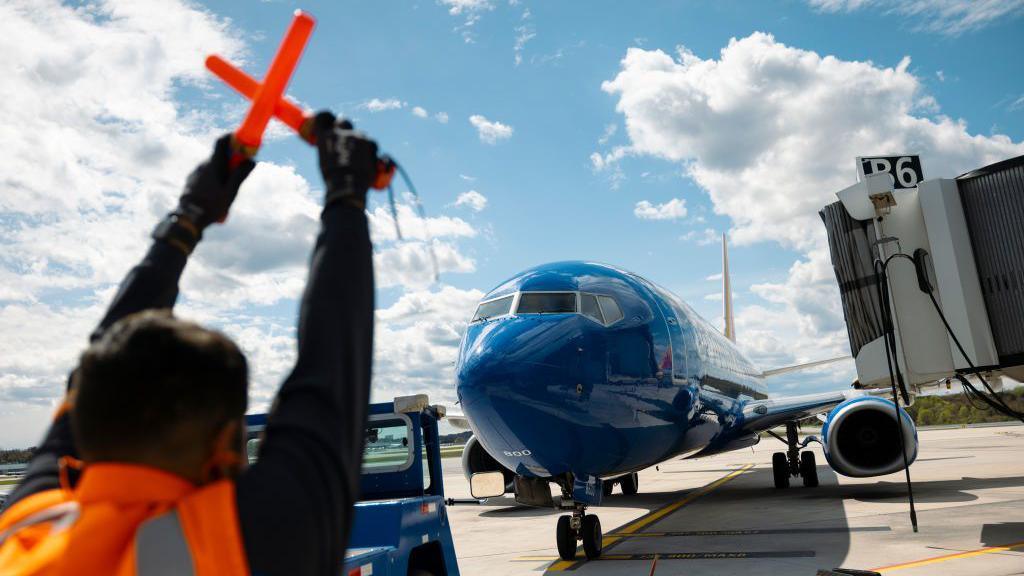Southwest scraps unassigned seating after 50 years

- Published
Southwest Airlines is to allow customers to reserve seats, scrapping the free-for-all of unassigned seating it has operated for 50 years.
The company it also planned to charge for "premium" seats with more leg room, add red-eye flights, and redesign its boarding system.
The announcements came as the firm reported that profits plunged in the April-June period to $367m, down 46% compared with last year.
Chief executive Bob Jordan said the seating changes would "unlock new sources of revenue".
The company currently assigns passengers to boarding groups based on when they check in, a system intended to help planes turn around quickly. Travellers can also pay extra to board earlier.
But it said its research had found that 80% of customers preferred assigned seats.
The airline said it would provide more detail about the changes in September.
The new red-eye flights will launch next year on five routes, including between Las Vegas and Baltimore and Los Angeles and Nashville.
Premium seats are expected to account for about one third of space, it said.
Southwest started in the 1970s gaining popularity with lower fares and good customer service.
It had been known as a holdout in the industry for not hitting customers with extra fees for items such as checked baggage.
But its share price has dropped sharply over the last few years, as its profitability lags others in the industry.
Last month, Elliott Investment Management, which is known for its aggressive and public showdowns with firms it sees as underperforming, said it had taken an 11% stake in the firm and would push for major changes, including the removal of Mr Jordan.
"Southwest's rigid commitment to a decades-old approach has inhibited its ability to compete in the modern airline industry," Elliott said, adding that the airline "outdated software, a dated monetisation strategy and antiquated operational processes".
Mr Jordan said he knew that the firm's performance this spring had fallen short.
The company has been affected by issues such as delayed plane deliveries from Boeing.
The airline, like others in the industry, is also facing pressure on fares, after overestimating demand for domestic travel.
The firm said it was cutting back capacity in the months ahead and the seating changes, in the works for months, would also drive improvements. It said the seating changes could generate more than $1bn in revenue.
"Although our unique open seating model has been a part of Southwest Airlines since our inception... this is the right choice - at the right time - for our customers, our people, and our shareholders," Mr Jordan said.
Shares in the firm rose more than 6% after the announcement.